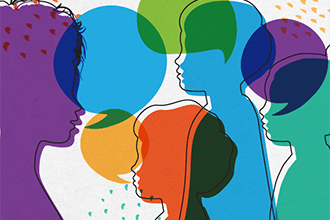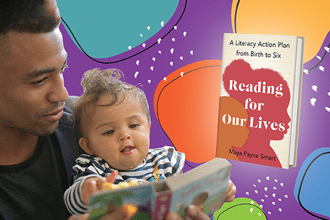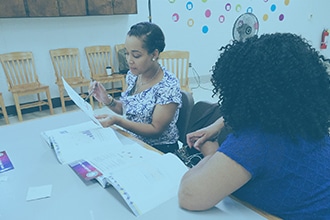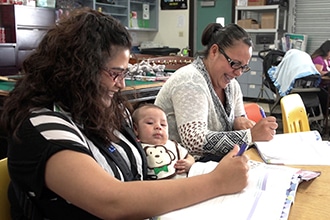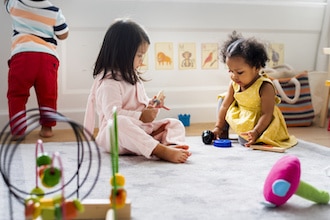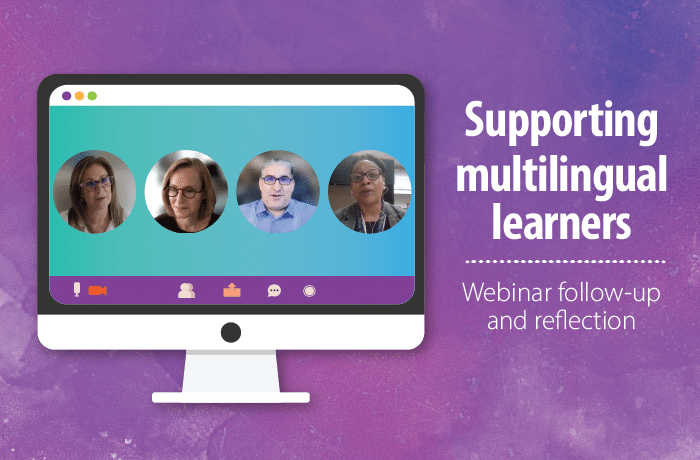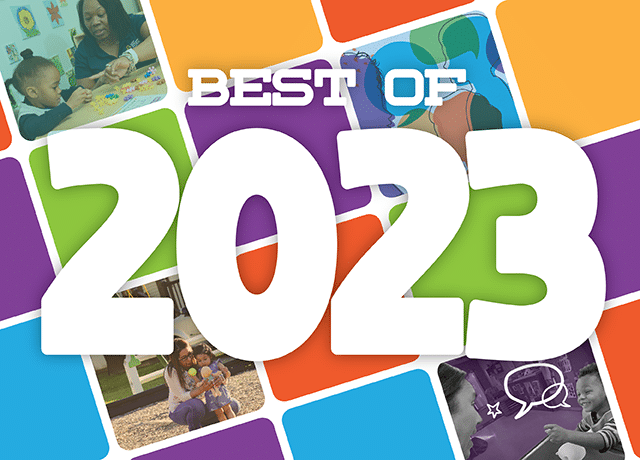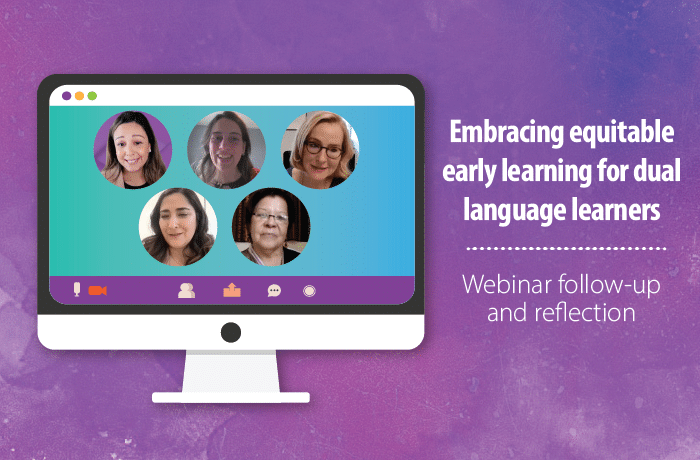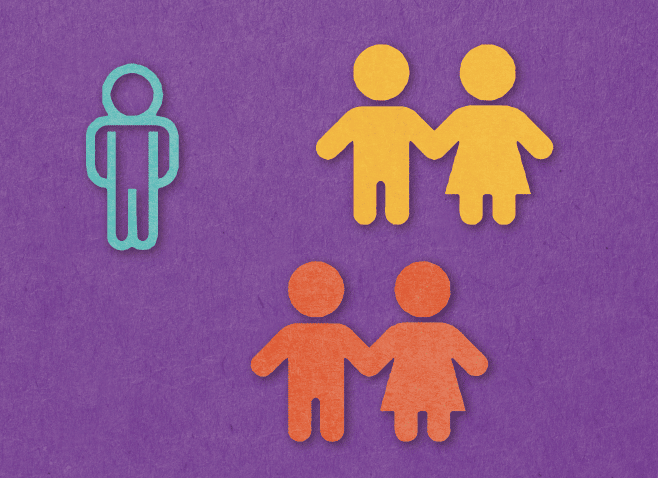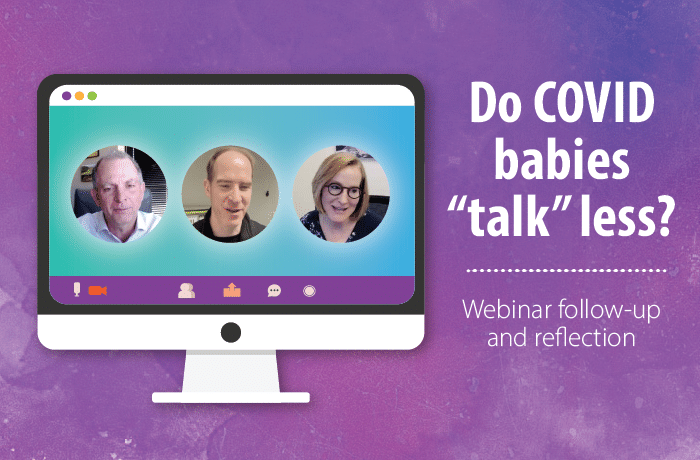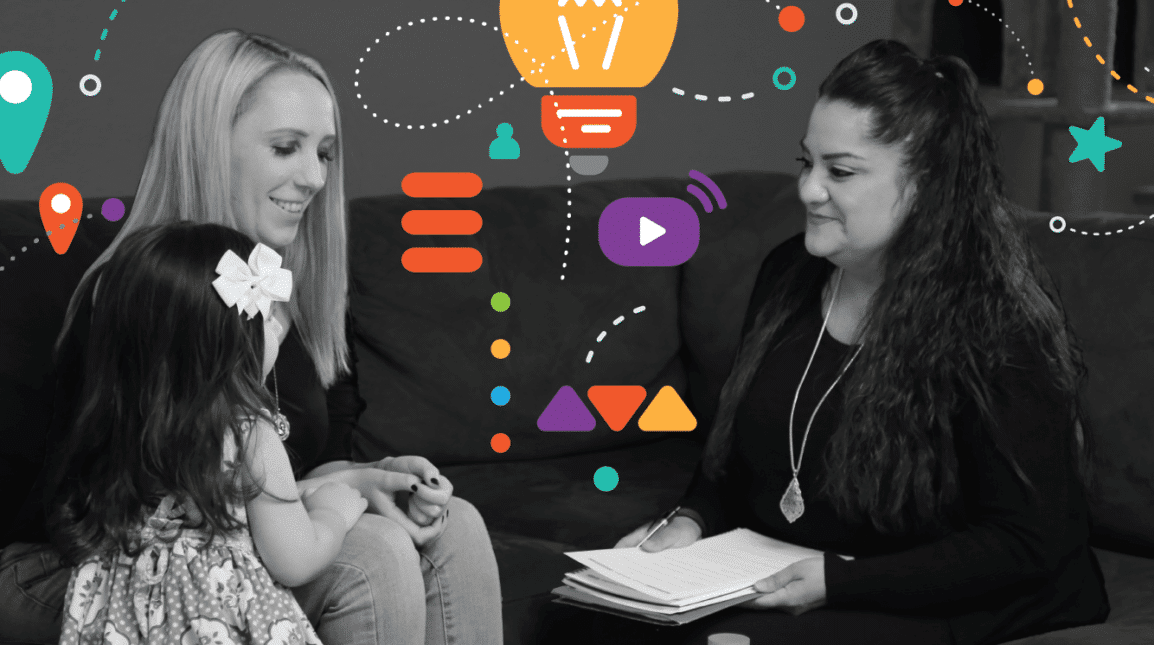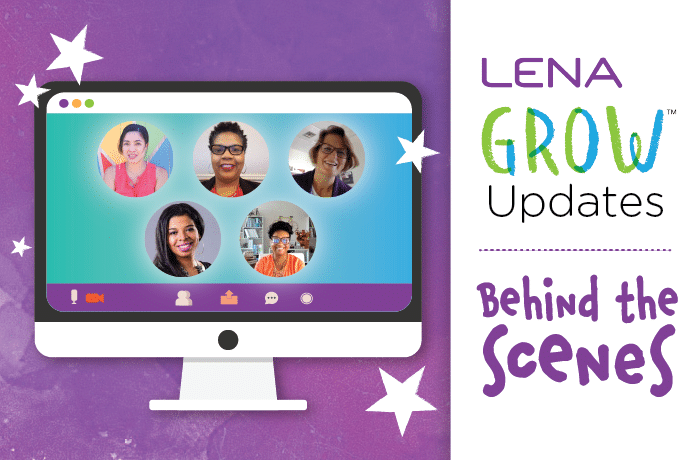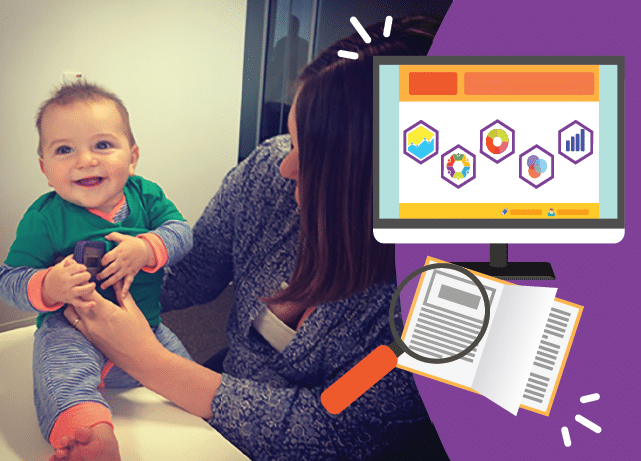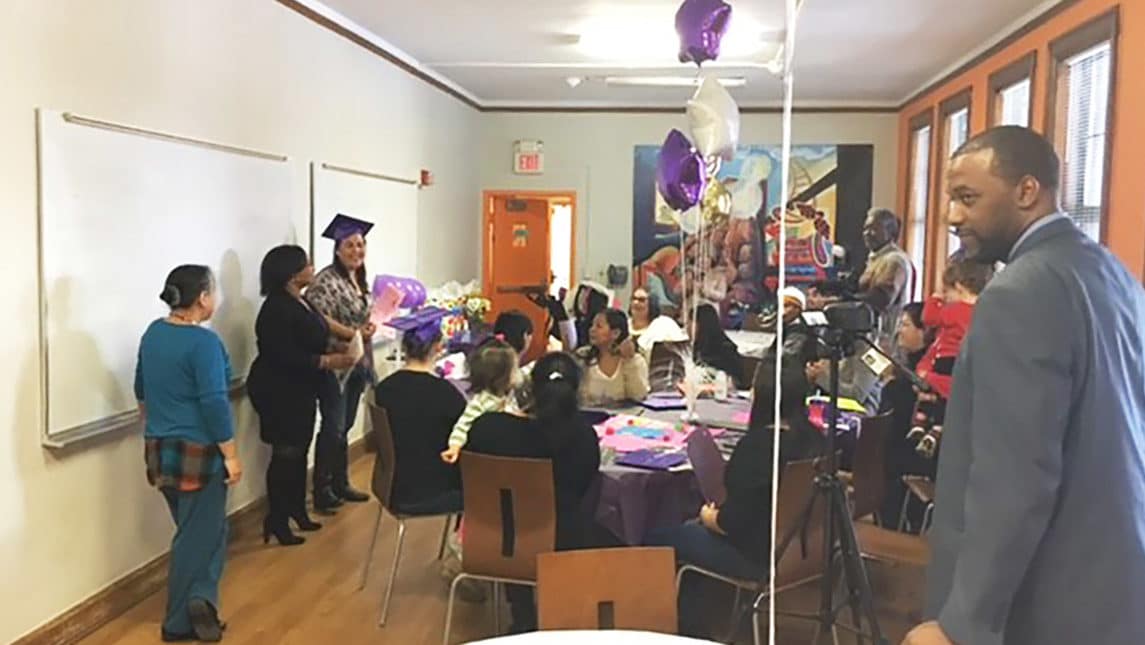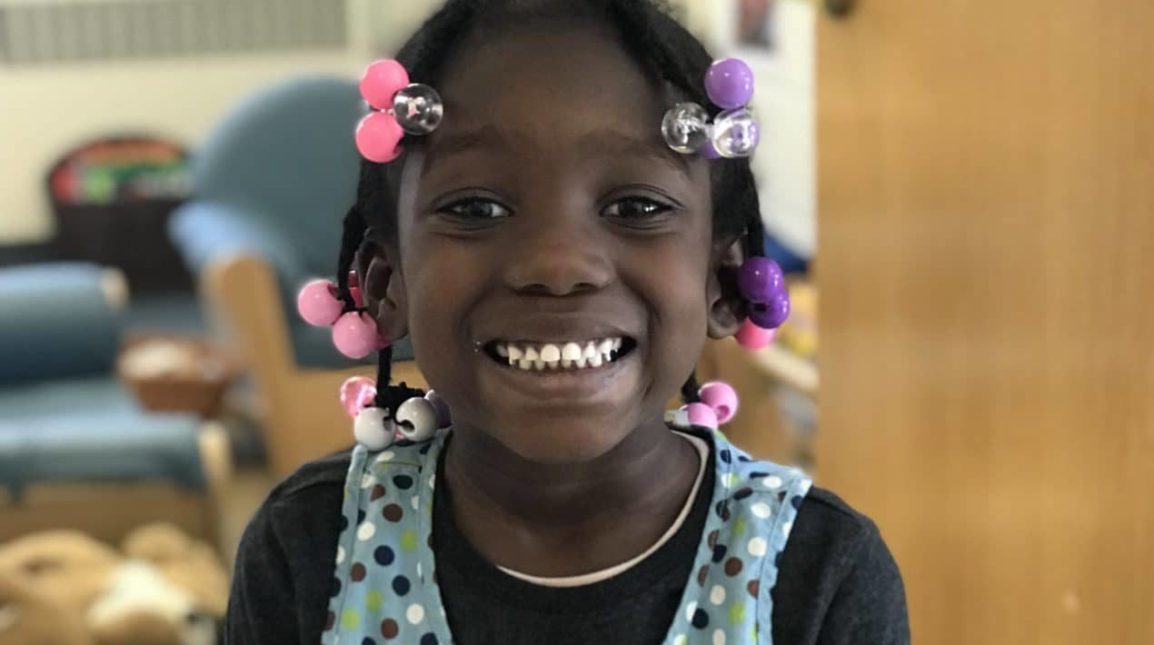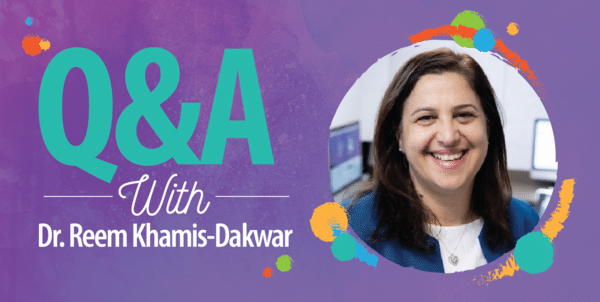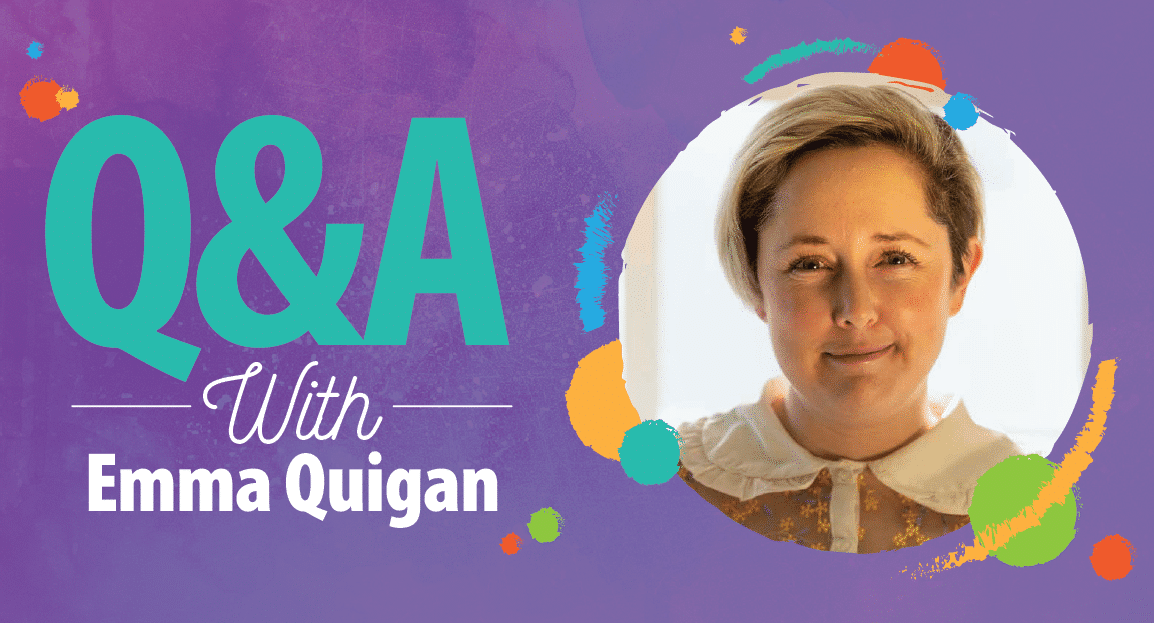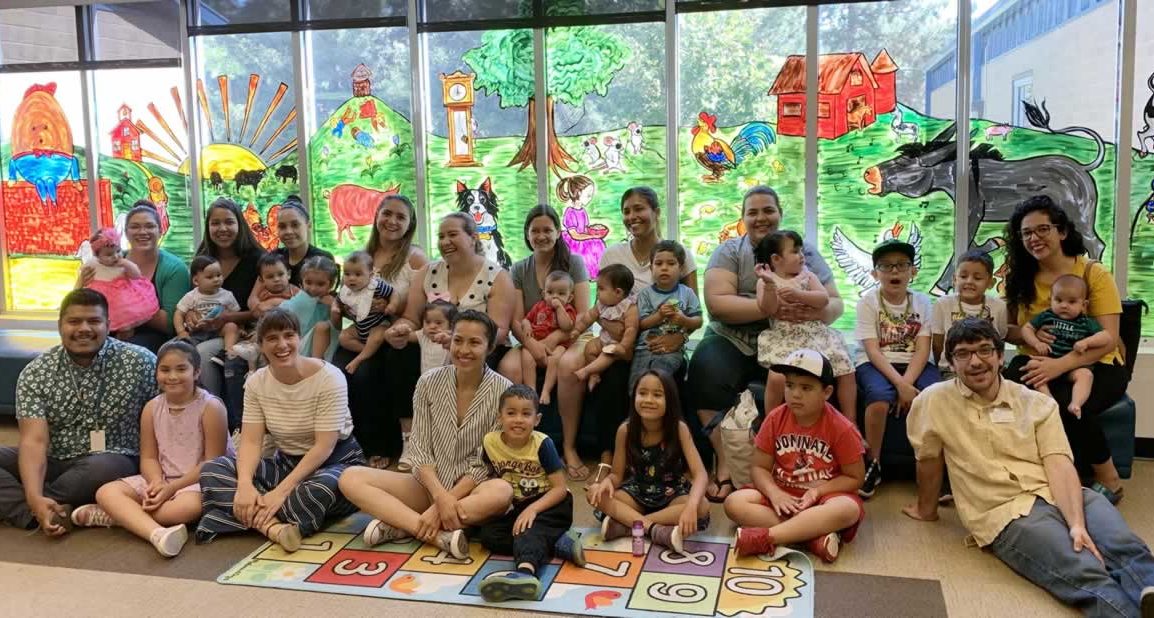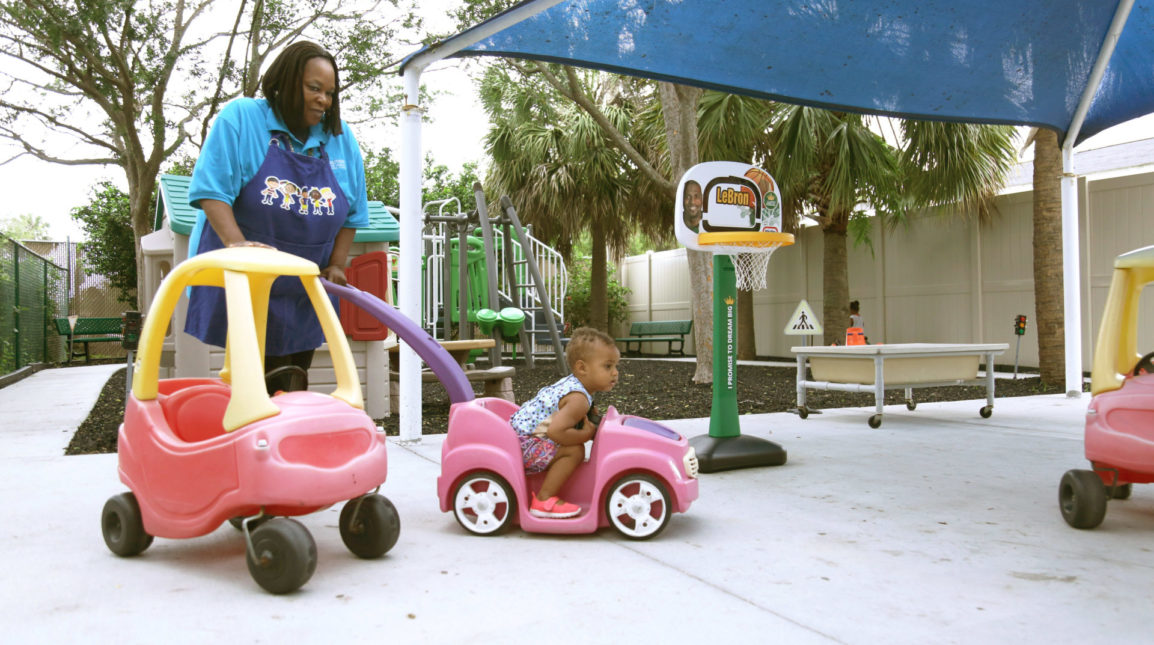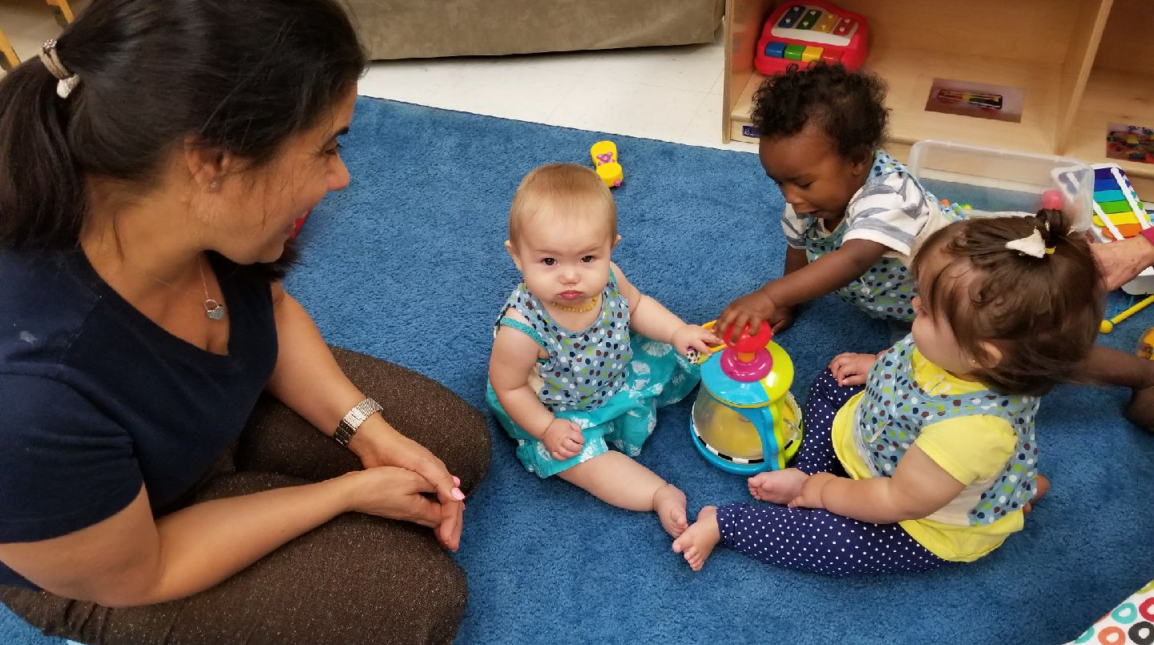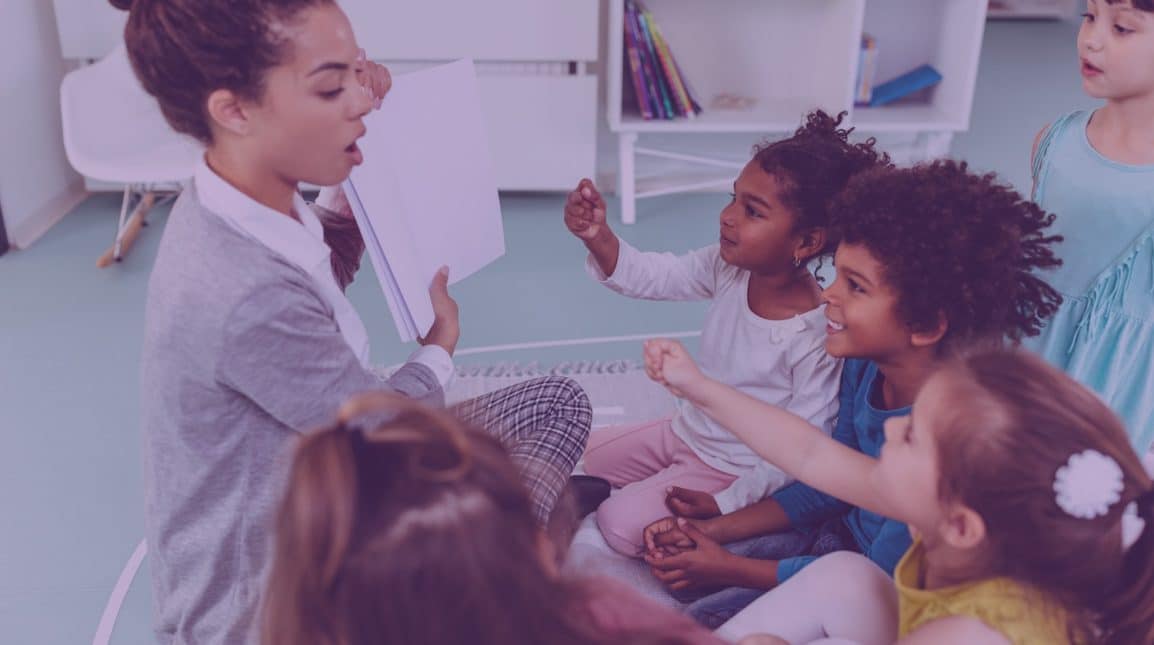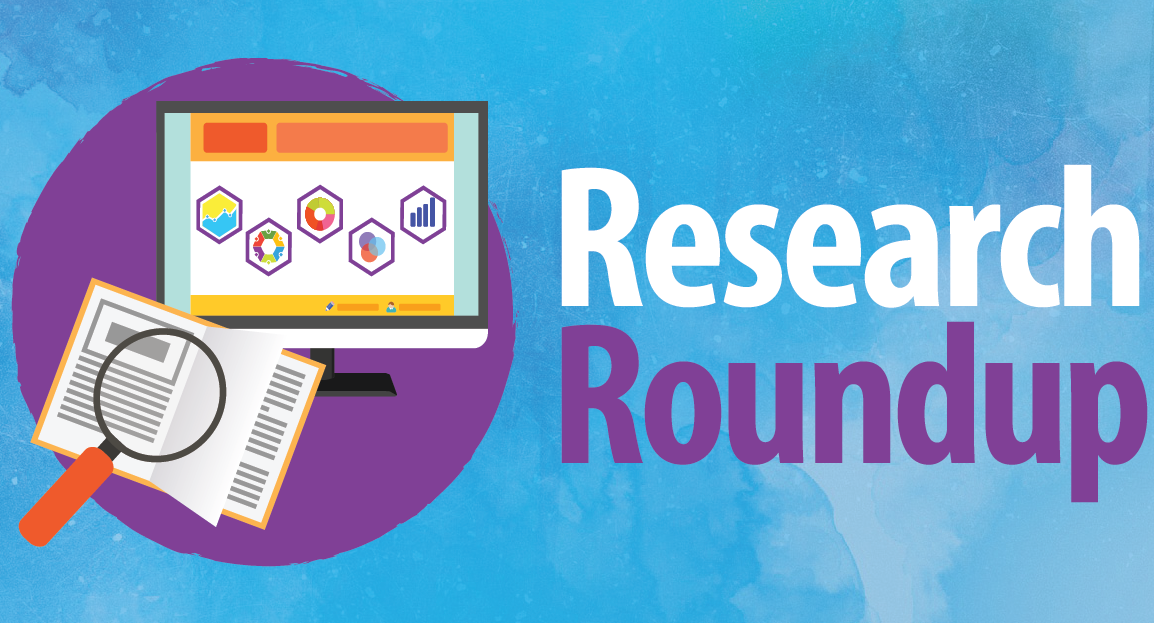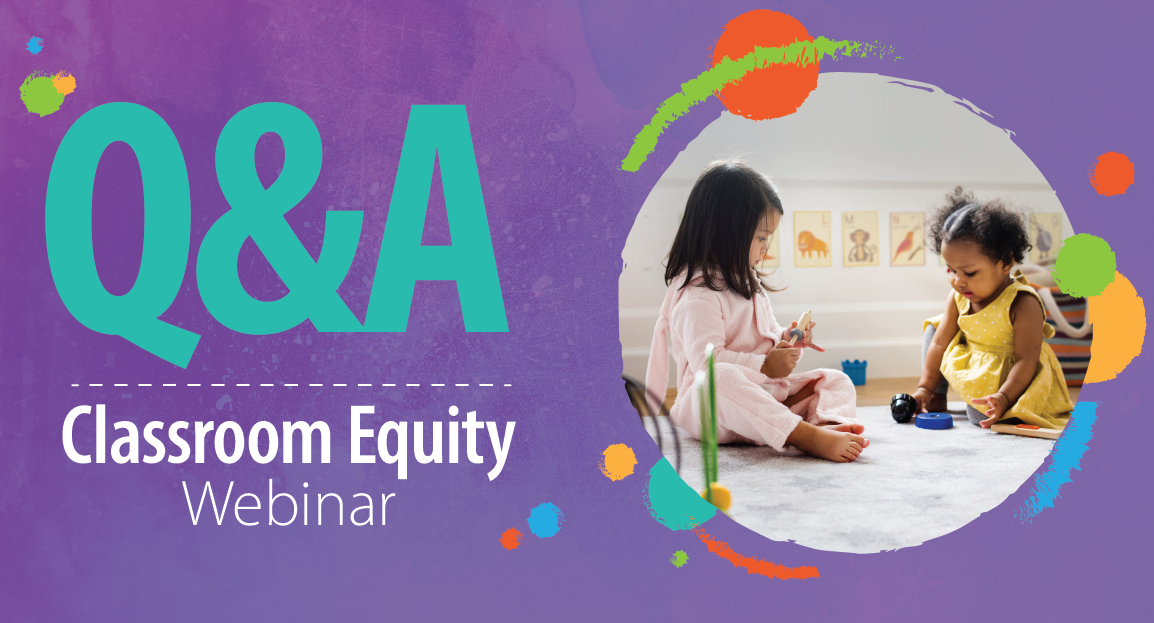In this webinar, we’ll outline the mismatch between science and practice around multilingualism. How do we push aside myths about barriers and deficits to arrive at a place where one child’s multilingualism is considered an asset for all?
Webinars (6)
“Reading for Our Lives”: A conversation about early talk and early literacy with Maya Smart
In her book Reading for Our Lives: A Literacy Action Plan from Birth to Six, Maya Smart uses the analogy of a road trip to describe the “road to reading” for parents of young children. Early talk can jumpstart the journey.
A conversation with Black Family Development on culturally responsive programming through a racial equity lens
Black Family Development, based in Detroit, implements programming to improve outcomes for children and communities. Learn how they do this through a racial equity lens.
Building culturally responsive, strengths-based programming across languages: Approaches from Denver and New Zealand
We talk with program implementers in both the United States and New Zealand who are building culturally and linguistically responsive programming. Learn how they’re succeeding.
Family Resiliency and Early Language: Leveraging a Public Health Lens With Interactive-Talk Initiatives to Improve Child Outcomes
In this webinar, medical practitioners help us understand early language development through a public health lens. How does interactive talk build family resiliency?
Creating Inclusive and Equitable Classroom Experiences
What does equity look like in early childhood classrooms? Learn concrete strategies for supporting coaches, teachers, and administrators in fostering more equitable classroom environments.
Blog Posts (24)
Supporting multilingual learners: Webinar highlights
Highlights from a LENA webinar: New data analysis on how much interaction dual language learners experience with their teachers in child care settings amplifies a call to action.
Dual language learners experience less teacher-child interaction in child care and preschool: New data analysis
Early childhood education classrooms across the U.S. provide significantly fewer conversational turns for children who are dual language learners than for their monolingual peers.
Early childhood mental health, dual-language learners, the science of reading, and more: A look back at our most popular content of 2023
LENA’s journey through 2023 has been marked by revealing insights and transformative discussions. Join us as we take a look back at some of the blog posts, webinars, and resources that gained the most attention over the year.
Dual language learners in early childhood education: Webinar highlights
“You have it already in your heart. Get rid of your fear. Go for it. Try.” Highlights from LENA’s webinar about dual language learners in early childhood education.
New data analysis: One in five children in child care spends most of the day in language isolation
According to LENA’s recent analysis of day-long audio recordings from 15,820 children, approximately one in five children spent most of the day in language isolation.
Webinar follow-up and reflections: Do COVID babies “talk” less?
Highlights and topics that emerged from our webinar on caregiver-child interactions during COVID with Dr. Sean Deoni and Dr. Jill Gilkerson.
Parent recruitment for LENA Start and LENA Home: Recognizing and responding to barriers
A recent Community Conversation among our partners inspired these new ideas about recruiting families for programs like Start and Home.
LENA Grow updates are coming…So who’s behind the curtain?!
These 12 LENA Grow advisors are helping to implement big improvements to the program.
Australia’s LiLO study: Analysis of home language environments from birth to school
Researchers with the LiLO study have set out to measure children’s home language environments every six months from birth to school entrance.
Celebrating AAPI Heritage: Building community and connecting to culture in Hawaiʻi
In recognition of Asian American and Pacific Islander Heritage Month, we’re highlighting two LENA Start programs in Hawaiʻi that are doing amazing work around cultural responsiveness.
For early childhood education, Women’s History Month must be more than a “Hallmark holiday”
The American Rescue Plan Act acknowledges an “acute, immediate child care crisis.” Women in early childhood education deserve dignity and prosperity.
Reflections honoring Black History Month
Two of our partners share their thoughts on the importance of Black History Month and how they integrate their personal beliefs into their professional work.
Bright Beginnings LENA Grow pilot shows significant change in the language environment of children experiencing homelessness
A pilot of the professional development program shows that teachers significantly increased the amount of interaction with the children in their classrooms.
Q&A with Dr. Reem Khamis-Dakwar: Empowering families to reclaim minority languages with LENA Start
In New York City, LENA Start classes empowered Spanish- and Arabic-speaking families to value their native languages and maintain them across generations.
Q&A with Emma Quigan: How COMET Auckland is using LENA with indigenous families in New Zealand
In New Zealand, LENA is a tool to empower whānau (families) to connect to culture and each other.
Being culturally responsive to families during LENA Start classes and beyond
Pedro Mendez, birth to three program administrator at Denver Public Library, explains how his team prioritizes and responds to the needs of families in a culturally appropriate way.
Survey results: How COVID-19 is impacting child care providers
Our team surveyed hundreds of people working with young children – including teachers, family child care providers, and center directors — to better understand how they have and will continue to adapt to protect the wellbeing of their children and staff during the coronavirus outbreak.
Justice starts at birth
In response to recent events, we have made a point to step back and deeply reflect in order to be both authentic and to highlight commitments on which we can and will act.
Q&A with Elliot Haspel, author of “Crawling Behind: America’s Child Care Crisis and How to Fix It”
We were delighted to welcome author Elliot Haspel to our staff book club discussion.
School districts use LENA programs to improve kindergarten readiness, child outcomes
School districts around the country are increasingly investing in the early years to give children an equitable start long before kindergarten.
Research Roundup: How to reduce the effects of Adverse Childhood Experiences (ACEs)
Explore research-based strategies for helping children overcome adversity.
Equitable and inclusive classroom experiences: Your questions answered!
We’re answering questions submitted during our webinar about how to create equitable and inclusive classroom experiences for children with Dr. Iheoma Iruka of HighScope, Ellen Roche of Trust for Learning, and Lauren Cooper from LENA.
Research Roundup: How adult friendship, socioeconomic status, and screen time may affect developing brains
Read the latest studies exploring how everything from a child’s socioeconomic status to the hours they spend looking at a screen are related to their brain development.
It’s Time to Shine a Light on Language Isolation in Infant and Toddler Classrooms
New grant opportunities are making it possible to adopt data-informed strategies for ensuring that we can look forward to a time when every child’s day is filled with wonderful, nourishing conversation.
Articles (10)
YW Calgary language program uses cutting-edge technology to support at-risk kids
A unique program using cutting-edge technology to develop language skills for at-risk children is being relaunched by YW Calgary.
Can science help poor kids earn more?
In a provocative video, Economist Films explores the role conversational turns may play in what they call "breaking the class ceiling."
Supporting Kindergarten Readiness and Early School Success in a Pandemic Year
While we're still learning about the pandemic's effects on children, it's clear that some learning setbacks have occurred. Overdeck Family Foundation writes about how parents and teachers, with help from organizations like LENA, have stepped up.
A Look Back on 2020: Supporting Impact in a Year of Challenge and Innovation
The Overdeck Family Foundation reflects on the last year of investments, recognizing the adaptations and challenges that grantees such as LENA have surmounted.
Invention Opportunity In Early Learning And Development
The pandemic has impacted education at all levels, including early childhood education. As we consider how to rebuild the broken system, LENA programs have emerged as one of several promising, innovative solutions.
5 Top Takeaways from Catalyzing Connections: Promise Venture’s Latest Entrepreneur Showcase
On June 10, Promise Venture Studio hosted a “Show +Tell” of recent innovations in early childhood education, featuring LENA Grow.
LENA programs offer path to close the early childhood word gap
Retired elementary school teacher Day McLaughlin shares research and personal anecdotes to emphasize how closing the early talk gap can benefit children, schools, and society.
Importance of language development in low-income, high-risk children
Study shows that conversational turns with teachers are positively related to language skills in children who are high-risk.
Here’s an intervention to keep our youngest learners from falling behind
Verbal engagement can influence child development more strongly than parental income or education, study shows
Coaching parents on toddler talk to address low-income word gap
This PBS Newshour piece examines strategies being used to increase conversation in the homes of families who are part of the Providence Talks program, as well as the program's use of the LENA System.



